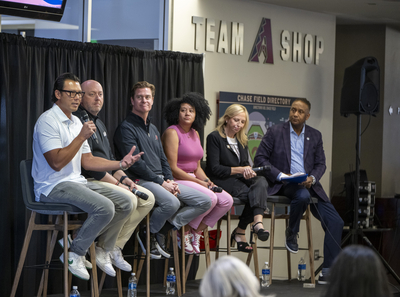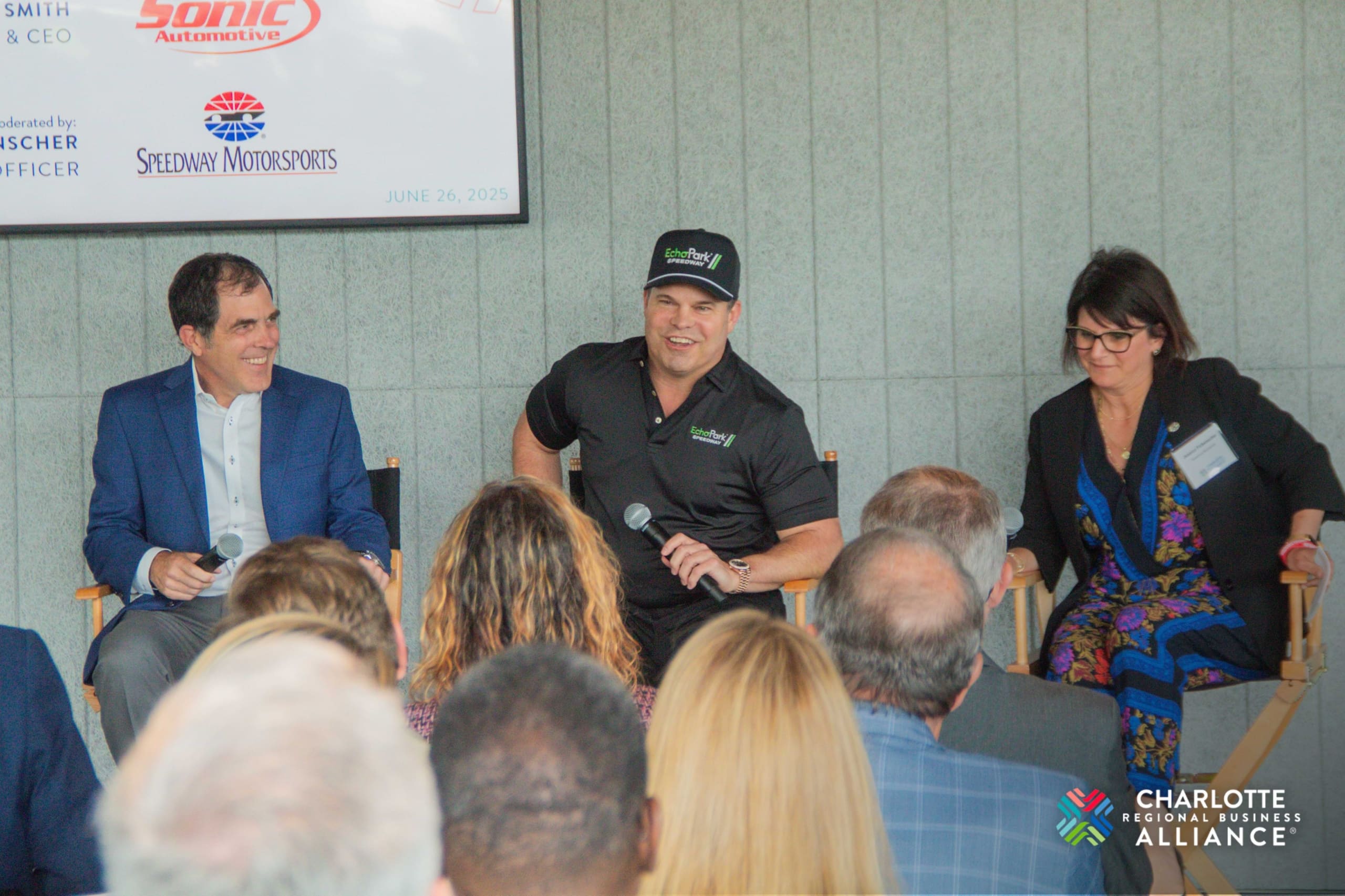With 14 professional sports venues within an hour’s drive, (a higher concentration than any city in the world) Phoenix has become one of the top sports markets in the United States.
The Valley is a high-growth market with major events in every sport. Since 1996, Arizona has hosted four Super Bowls, two World Series, dozens of Phoenix Open golf tournaments, Cactus League Spring Training, and myriad sporting events of all sizes.
Greater Phoenix plays to win. Which is one big reason why, last week, a delegation of 130 leaders from the Charlotte Region’s business, civic, and nonprofit communities traveled to Phoenix for the Charlotte Regional Business Alliance’s annual Exploring Economies trip.
Attendees heard from leaders in Greater Phoenix’s sports and hospitality industries about the market’s landscape and the secret to their success.
Moderated by Seth Bennett, chief marketing officer for Hornets Sports & Entertainment, the conversation featured Latasha Causey, president of NASCAR’s Phoenix Raceway; Dan Costello, executive vice president & chief revenue officer for the Phoenix Suns & Phoenix Mercury; Jay Parry, CEO of the 2024 Men’s Final Four Host Committee; Cullen Maxey, executive vice president, business operations & CRO of the Diamondbacks; and George Thimsen, 2024 WM Phoenix Open tournament chairman.

Parry said Phoenix’s competitive advantage is that it is home to “growth-minded leaders who are committed to investing” in sports and tourism. Their secret sauce? How they all work together.
“We are going 365 days a year, as fast as we can, together, to be known as a top venue,” Parry said.
The market’s experience in hosting on the world’s stage speaks for itself. But while leaders in the sports industry say they use that experience as resume bullet points when they pitch to host major events, they don’t rest on previous success.
“With all these major events, it is highly competitive. They get bigger and bigger each year, Costello said.
Business and civic leaders come together with bigger, bolder thinking, outside-of-the-box pitches, and a winning mindset. The city and state continue to invest in infrastructure, hotels, and enhancements to sporting and entertainment to keep them “Best in Class.”
In 2022, the governor created the Major Events Fund to pay for major sporting and entertainment events, provide grants to local organizing committees, attract new events to market, and fund economic development activities associated with those events.
“We can’t buy the type of exposure these events give to our community,” Parry said. ‘We view events as a sampling program. We get as many people to sample Arizona as we can. Come buy a home, come to visit, bring a business here.”
The state’s return on investment is undeniable. A report co-produced by the Arizona Chamber Foundation and Rounds Consulting Group calculated that the Cactus League, Phoenix Open, and past Super Bowls generated between $180 million and $1.3 billion in economic impact per event. Medium-scale events, like the NCAA Championship and the MLB All-Star game, each generated between $67 and $324.5 million in economic impact.
This spring, Glendale hosted the NCAA Men’s Basketball Final Four and championship games. The whirlwind four days of events brought 150,000 attendees to the greater Phoenix area and is expected to deliver an estimated $250 million-$300 million positive economic impact.
Market leaders are already looking ahead to what’s next.
“We’re already working on bids for 2030 and beyond,” Parry said.
All agreed the investments in sports and tourism will create a winning record for years to come.
“It’s all about finding the best teammates,” Maxey said.
“When we’re successful, it allows us to give back more to our community and leave a legacy,” Causey said.
Photography: © 2023 Mark Skalny Photography, All Rights Reserved.


